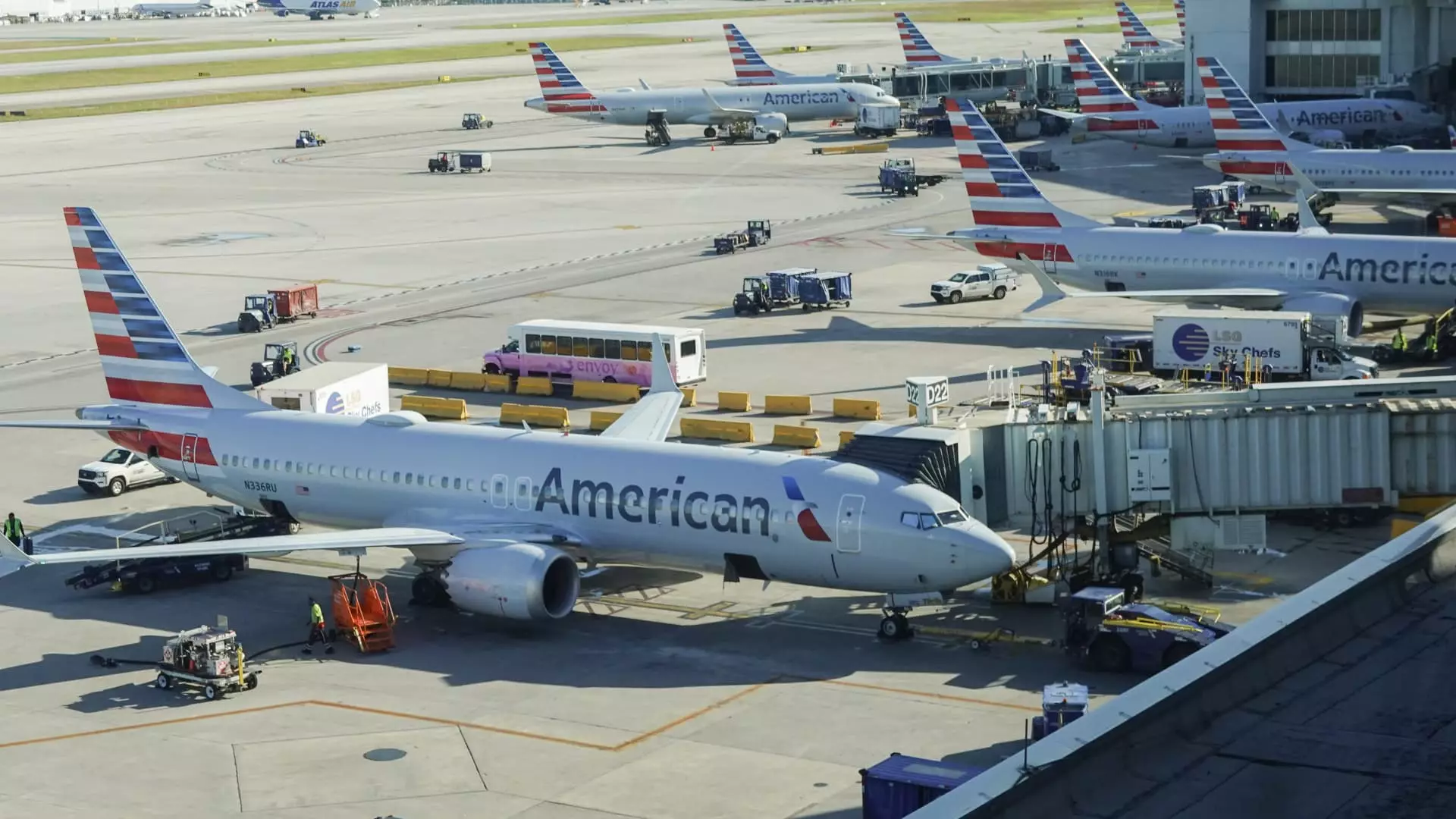On a Tuesday morning that began like any other during a peak travel season, American Airlines found itself at the center of a disruption when it briefly grounded all its U.S. flights due to technical difficulties. The grounding was instigated by issues related to the airline’s network hardware and its operational systems, which are managed by a third-party vendor, DXC Technology. The nature of the problem was such that it affected the crucial data required for flight readiness, including parameters like an aircraft’s weight and balance. This incident raised alarm among travelers and highlighted vulnerabilities in the airline’s operational infrastructure, especially during a time when consumer demand is at its peak due to the holidays.
The grounding, which lasted under an hour, was notably time-sensitive given that airlines often operate during a rush of seasonal travelers. By 7:55 a.m. ET, American Airlines had lifted the ground stop, confirming that operational systems were back online and flights could resume. A company spokesperson expressed sincere apologies for the inconvenience caused to travelers, demonstrating the awareness and responsiveness that the airline seeks to project during such events. Despite the hiccup, the airline reported that there were no cancellations connected to this specific issue.
Ground stops are a common operational maneuver utilized by airlines, particularly during periods of demand surges or when faced with unexpected circumstances. These procedures can be triggered by technical issues like the one experienced by American Airlines, or by environmental factors such as severe weather conditions. The request for a ground stop must be made to the Federal Aviation Administration (FAA), which serves to prevent destination airports from experiencing congestion and potential operational chaos due to an influx of inbound flights.
This incident underscores a growing concern surrounding the reliability of airline technology systems. Following high-profile operational failures in the past, such as the widespread cancellations experienced by Southwest Airlines during the 2022 holiday season and Delta Air Line’s operational complications from a cybersecurity incident, the scrutiny on airline technological infrastructure has intensified. Passengers are becoming increasingly aware of the fragility of the systems that underpin their travel experiences, and these incidents can lead to erosion of trust among consumers.
As American Airlines and the broader airline industry approach the peak holiday travel season, the importance of robust technological systems cannot be overstated. The reliance on third-party vendors for critical operational systems poses inherent risks, and it may be imperative for airlines to reassess their technological frameworks to mitigate similar occurrences in the future. While this incident was resolved without significant long-term impact, it serves as a reminder of the complexities involved in modern air travel operations and the vital necessity for contingency planning in the face of unexpected disruptions.

